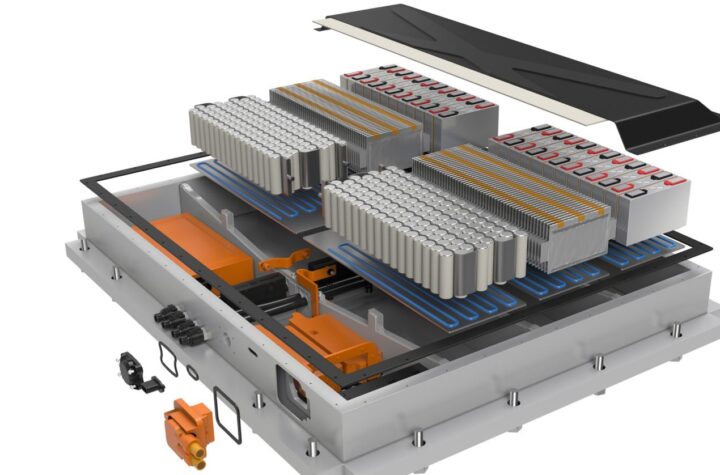
With the global connected car market expected to skyrocket over the next five years, technology leader Laird (LRD: London) is launching the auto industry’s first fully integrated and scalable module for secure mobile connectivity and automotive ethernet for reliable Internet use inside and outside the vehicle, the company announced today.
Laird MAX (Modular Automotive Connectivity Solution), which is being introduced worldwide today, brings together state-of-the-art communications technologies, characterized by flexibility, scalability, an open software concept, a Linux-based security module, and Laird’s integrated antenna system.
“Besides the added safety and comfort for drivers and passengers, MAX enables a wide range of services, from driver-assisted navigation, advanced diagnostics for maintenance, theft protection, over-the-air software updates, and other benefits that can be scaled to meet the needs of automakers and their customers,” said Laird Vice President of Product Management Guido Dornbusch.
Worldwide sales of connected cars are expected to reach 72.5 million in the next five years, according to industry analyst IHS Markit. That means by 2023, almost 70 percent of all passenger vehicles sold around the globe will be exchanging data with external sources, bringing new services and new business models to bear in automotive markets around the globe, especially in North America, Europe and Asia.
Laird Product Director of Vehicle Communication Devices, Dietmar Schnepp said the modularization of MAX enables automakers to have a short time-to-market compared to tailor-made solutions.
“The platform can be integrated into a Laird system solution, including control unit and antenna, and used for external service providers as the basis for a back-end connection or for app development, which is especially attractive for smaller companies,” Schnepp added.
Dornbusch said MAX will provide end-users requiring high volumes of data to have an optimal cost-per-feature solution, and that the platform’s flexibility makes it attractive to customers who only need networking for small batches.
Applications that can be implemented on MAX include, for example, Internet gateway functionality, a remote diagnostic tool, a remote-control system, location functions, and driver statistics. The wealth of implementable applications makes it possible to set up a wide range of services for OEMs, fleet operators, insurance companies, and other industry-related entities.
“MAX enables a connected vehicle to continuously and securely stream and share data with multiple wireless devices and applications inside and outside the vehicle’s immediate environment,” Dornbusch said. “In the future, the platform can serve as a communication basis for networked and autonomous vehicles, especially in connection with ‘smart cities.’ But, it also is suitable for use with trucks, fork-lifts or machines in the context of networked logistics or for smart farming in agriculture.”
Importantly, MAX is environmentally friendly because the use of custom features limits the number of components and their weight, Dornbusch said. By optimizing the energy management, the power consumption is reduced, which is a differentiation advantage especially for electric vehicles.
About Laird Connected Vehicle Solutions
At Laird, we make technology work. As a trusted partner to the world’s leading automotive brands, Laird’s Connected Vehicle Solutions (CVS) division designs, develops and delivers solutions to keep vehicles connected while on the move. Operating locally, Laird serves as an extension of our customers’ engineering teams, and our world-class expertise provides the depth and breadth to solve the most complex problems. Laird’s custom engineered solutions are enabling OEM customers to transform vehicle connectivity across the globe, solving the challenges of today and anticipating those of tomorrow.
About Laird
Laird is focused on providing systems, components and solutions that protect electronics from electromagnetic interference and heat, and that enable mission critical connectivity through wireless applications and advanced antenna systems. Laird’s products are critical to all sectors of the electronics industry, including transportation, industrial, medical, telecommunications, computing, and the mobile device sectors. Laird employs nearly 9,700 employees at 48 locations, including 20 engineering and manufacturing facilities, 18 research and design centers, and 10 sales and administrative offices, in 19 countries worldwide.












More Stories
DuPont materials science advances next generation of EV batteries at The Battery Show
How a Truck Driver Can Avoid Mistakes That Lead to Truck Accidents
Car Crash Types Explained: From Rear-End to Head-On Collisions